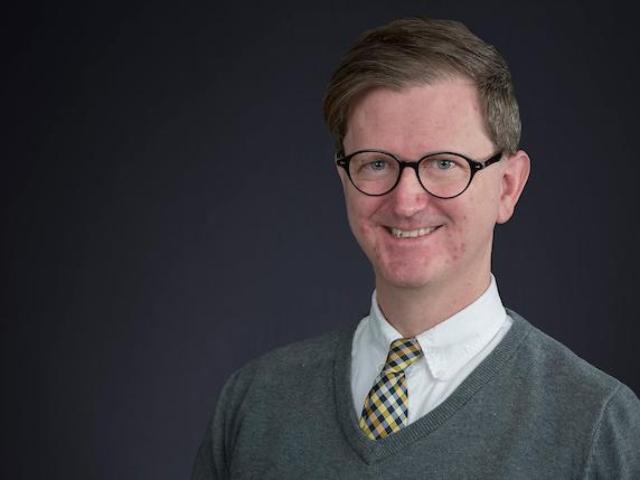Master of Arts in Applied Professional Studies
Develop advanced in-demand skills to meet immediate workplace needs. An Applied Professional Studies degree focuses on industry specific skills that employers are looking for today while combining real-world application. We designed the MAPS program for the working professionals - offering a flexible format, online courses, and affordable opportunity to achieve your professional and personal goals that align with potential for career advancement and upskilling needs.
10 courses. 30 credits. 100% online.
Employers want people who can communicate effectively, work effectively with data, think strategically, and practice leadership in team settings. We all have some idea what that means, but the Masters Degree in Applied Professional Studies demonstrates to employers without a doubt that you have applied learning exactly in those areas. It is a degree in the soft skills that are so important in the 21st century.
Our courses are designed for working professionals. We offer them on online in full semester and 7 week sessions, year-round. Most students complete the program in two academic years, but you can schedule a pace that works for you. The 30-credit curriculum includes core courses (15 credits) and a concentration (15 credits) selected to meet your specific career track in Leadership in Public Service, Smart City Policy and Planning, or Content Expertise for the Professional Educators.
You also have the opportunity to explore graduate level coursework across the concentrations for a self-designed degree. Graduate with a unique skill set that does not exist in a current degree program. (Self-designed degree programs must be created in consultation with a MAPS advisor.)
PRACTICUM
This is a skill based program-all of our courses are designed to give you the opportunity to practice what you are learning and to see the immediate utility of these skills. As part of the Core, you will be required to complete a Practicum (vs a thesis), which is an applied learning opportunity to demonstrate skills learned in the program. The Practicum is a faculty supervised project that identifies a business or community partner problem and a solution created by you. This practicum can be used to demonstrate your skills to your current or future employer.
Applications can be frustrating. We invite you to have a conversation with a real person. Contact Denise, our program advisor at: maps@uwp.edu
Program ineligible for international F-1 or J-1 visa holders. (J-1’s are for short-term exchange students and F-1’s are for degree seeking students.) International students are welcome to enroll in this program from home.
THREE CONCENTRATIONS TO ALIGN WITH YOUR CAREER GOALS
LEADERSHIP AND
PUBLIC SERVICE
Add legitimacy and credibility to your demonstrated passion for community.
This program will enhance your ability to take community engagement and corporate involvement to a new level.
SMART CITY POLICY AND PLANNING
Explores business models, technologies and best practices for turning a smart city plan into reality. Learn to ensure that the needs of the surge in innovation can be met and supported as well as ensuring that local residents are able to participate in, and benefit from, the new economy.
CONTENT EXPERTISE FOR THE PROFESSIONAL EDUCATOR
Created for teachers and other working professionals who want a master's degree to expand their teaching to the college level, as well as those that want to demonstrate applied expertise.
Core Program
Upon completion of the core program, you will be able to:
- Employ effective communication strategies for diverse settings and audiences
- Consider organizational change in the context of a dynamic society
- Evaluate and critique existing structures in the public or private sector
- Plan effective implementation strategies
- Produce a problem-solving policy based on evidence, professional inquiry, and decisive action
- Develop strategies to resolve value-based conflict
- Analyze and interpret data in the professional setting
Core Courses
CORE COURSES
MAPS 700: Formal Organization
Examines fundamental issues concerning formal organization and its impact on individuals and society.
MAPS 701: Applied Research for Professionals
Articulates the validity and complexity of data as illustrated in research.
MAPS 702: Professional Ethics
Identifies ethical and moral problems and formulates strategies to avoid making ethically questionable choices.
MAPS 703: Professional Communication
Examines communication or communication in a global workplace emphasizing intercultural and multi-generational differences.
MAPS 705: Practicum
Provides an opportunity to utilize coursework knowledge in an applied setting based on specialization area. Requires 100 hours of a supervised project.
How to Apply
Admission applications will be accepted on a rolling basis. Applicants are required to have an undergraduate degree with a cumulative GPA of 2.75, or if the applicants has a graduate degree the GPA requirement is waived. Applicants are also required to submit all undergraduate and graduate transcripts, a current resume/CV, and two letters of recommendation, preferably one from a current supervisor if employed.
For applicants who do not meet the admission criteria, admission with probationary status may be granted after taking into consideration the applicant’s special qualifications and circumstances. Students admitted on probation will be on probation for their first 9 semester credits. A student who is admitted on probation is required to attain a minimum GPA of 3.00 on the first 9 credits hours of course work completed at UW-Parkside. Students who do not meet the above requirement will be dropped from the program.
Applicants are not required to take the GRE or MAT assessment for admission to the program.
International students from non-English-speaking countries must demonstrate proficiency in English.
Official TOEFL scores must meet or exceed the below requirements:
- Paper-based: a minimum score of 525
- Computer-based: a minimum score of 197
- Internet-based: a minimum score of 71
Official IELTS scores that meet or exceed the below requirements:
- A minimum score of 6.0
For students from English-speaking countries, no English Proficiency Examination Scores are required.
Admission applications will be accepted on a rolling basis. Applicants are required to have an undergraduate degree with a cumulative GPA of 2.75, or if the applicants has a graduate degree the GPA requirement is waived. Applicants are also required to submit all undergraduate and graduate transcripts, a current resume/CV, and two letters of recommendation, preferably one from a current supervisor if employed.
For applicants who do not meet the admission criteria, admission with probationary status may be granted after taking into consideration the applicant’s special qualifications and circumstances. Students admitted on probation will be on probation for their first 9 semester credits. A student who is admitted on probation is required to attain a minimum GPA of 3.00 on the first 9 credits hours of course work completed at UW-Parkside. Students who do not meet the above requirement will be dropped from the program.
Applicants are not required to take the GRE or MAT assessment for admission to the program.
Submit letters of recommendation and resume by email to: admdocs@uwp.edu
NOTE: Transcripts may not be sent by the applicant; they must be sent directly from the institution.
Submit letters of recommendation and resume by email to: admdocs@uwp.edu
NOTE: Transcripts may not be sent by the applicant; they must be sent directly from the institution.
International students from non-English-speaking countries must demonstrate proficiency in English.
Official TOEFL scores must meet or exceed the below requirements:
- Paper-based: a minimum score of 525
- Computer-based: a minimum score of 197
- Internet-based: a minimum score of 71
Official IELTS scores that meet or exceed the below requirements:
- A minimum score of 6.0
For students from English-speaking countries, no English Proficiency Examination Scores are required.
tuition + fees
Fall 2018/Spring 2019 Tuition
$497.78 per credit hour (Resident)
$1,020.27 per credit hour (Non-Resident)
$716.38 per credit hour (Midwest Exchange)
Fall 2018/Spring 2019 Fees
$65.00 per credit fee for online courses
Total Tuition and Fees
$14,993.40 30 credit hours
$1,950.00 fees
$16,943.40*
(If taken at 9 or less credits per semester. Tuition plateau applies for 9-12 credits, ask advisor for more information.)
*Based on current tuition and fees established by the University Cashier’s Office.
Program ineligible for international F-1/J-1 visa holders
PROGRAM CONTACT INFO
Denise Olstinske | 262-595-2162 | denise.olstinske@uwp.edu
Faculty Highlights
-

Mita Banerjee
Assistant Professor of SociologyMita Banerjee is an Assistant Professor in the Sociology department. She teaches courses in Sociology of Education, Statistics, and Research Methods. Her current research interest lies in gaining insight into factors that motivate and deter first generation and under prepared students in choosing online courses and the areas of improvement necessary to enhance their online learning experience. Additionally, she is interested in investigating the role of unequal access to health care in exacerbating social inequalities in well-being.
-
Dr. Xun (George) Wang
Professor of SociologyDr. Wang's research focuses on global social change, organizational studies and China studies. He has published four books including Global Sociology, Human Resource Management and more than sixty articles in Journal of International Management, Thunderbird International Business Review, Journal of Youth Studies, Asian Pacific Business Review, Journal of Third World Studies and Journal of Asian and Africa Studies, etc. He is the recipient of 2012 Research and Creative Activity Award at the University of Wisconsin-Parkside and the University of Wisconsin System Teaching Scholar of 2014.
-

Dr. Joy Wolf
Professor of BiogeographyDr. Wolf's research interests include biogeography, soils, and fire ecology in forests, wetlands, and grasslands in Arizona, Colorado and Wisconsin, and bird dynamics in coastal forests in the Pacific Northwest. She teaches Biogeography, Landscape Ecology, Dendrochronology, Soil Ecosystems, Field Methods, Geomorphology, Physical Geography and Natural Resources Management. She is the recipient of the 2017 Chancellor's Award for Teaching and Learning Assessment. She is published in over twenty different journals, including Journal of Applied Ecology, and the Journal of Higher Education Outreach and Engagement. Instructor Profile
-

Dr. Theresa Castor
Professor of CommunicationTheresa Castor conducts research on organizational decision-making, focusing on crisis and problem situations in meetings and governance groups. She graduated from the University of Washington in 1999 with a PhD in Speech Communication.
-

Dr. Philip Wagner
Assistant Professor of Criminal JusticeDr. Wagner is an Assistant Professor joining us from Fairmont State University in West Virginia. He received his B.S. and M.S. in Criminal Justice. He has a Ph.D. in Criminology from Indiana University of Pennsylvania.
-

Dr. Christopher Hudspeth
Assistant Professor of Philosophy
REQUEST INFORMATION




